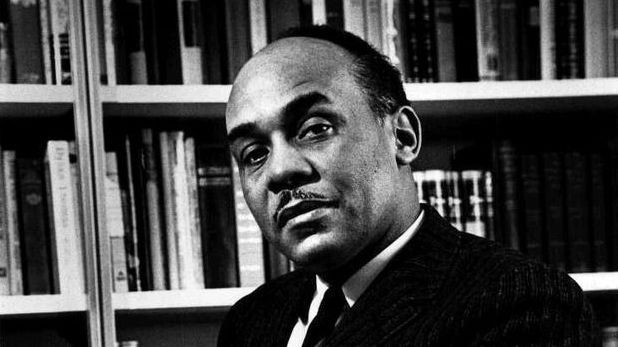Invisible Man Review: Unveiling the Literary Masterpiece
Invisible Man Review:
Prepare to embark on a literary journey that is all about Invisible man review. In this exploration of Ralph Ellison’s timeless masterpiece, we’ll unravel the intricacies of the narrative, the depth of its characters, and the enduring relevance of its themes. Join us as we dive into a world where the quest for identity and visibility takes center stage, and the pursuit of truth becomes a universal endeavor. “Invisible Man” isn’t just a novel; it’s an odyssey into the complexities of the human experience, and it’s all about making sense of the world within its pages.
Understanding the Author
In this article of Invisible Man Review, we will realize that Ralph Ellison, the brilliant mind behind this novel, was a literary genius whose words continue to resonate in the literary world. Born in Oklahoma City in 1913, Ellison’s experiences as an African American in the early 20th century greatly influenced his work. His profound insights into the complexities of identity, race, and society are brilliantly woven into the fabric of Invisible Man

Ellison’s life experiences informed his writing in profound ways. Growing up in the era of racial segregation and inequality, he faced numerous challenges that shaped his worldview. These experiences became the wellspring from which he drew the narrative. His ability to distill the essence of the African American experience in a rapidly changing America set him apart as a remarkable author.
Plot Overview
Set against the backdrop of mid-20th century America, “Invisible Man Review” follows the life of an unnamed African American protagonist. His journey takes us through the racial and social injustices of the time, offering a visceral exploration of the invisibility faced by those marginalized by society. Ellison’s narrative paints a vivid picture of the protagonist’s quest for identity and meaning in a world that refuses to see him.

The novel’s plot is a journey of self-discovery and self-realization. The unnamed protagonist begins as a young, idealistic student who believes that education will lead to social equality. However, as he navigates the complexities of race, identity, and societal expectations, he realizes that he is rendered invisible by the color of his skin. His invisibility is not a physical condition but a societal one, where he is unseen and unheard. This realization sets him on a path of self-exploration and resistance.
Unpacking the Characters
One of the novel’s enduring strengths lies in its richly developed characters. The unnamed protagonist, often referred to as the “Invisible Man,” serves as a symbol of the marginalized and unheard. His encounters with a diverse cast of characters, including Dr. Bledsoe, Ras the Exhorter, and Brother Jack, provide deep insights into the complexities of identity and power dynamics.
Each character in “Invisible Man Review” serves as a reflection of the broader societal attitudes of the time. Dr. Bledsoe, for example, embodies the notion of respectability politics, where African Americans were expected to conform to white societal standards to gain acceptance. Ras the Exhorter represents the radical and militant response to racial oppression, while Brother Jack symbolizes the allure of communism as a means of achieving social justice.
Themes Explored
“Invisible Man Review” delves into profound themes that continue to resonate in contemporary society. The novel explores the concept of invisibility, both literal and metaphorical, as the protagonist grapples with being seen only as a stereotype rather than an individual. Ellison’s masterful storytelling also touches on themes of identity, social conformity, and the search for personal truth.
The theme of invisibility is central to the novel. The protagonist is invisible not because of any supernatural ability but because of the deeply ingrained racial prejudices of society. His invisibility is a metaphor for the dehumanization of African Americans during this period. It reflects how society refused to acknowledge the individuality, struggles, and aspirations of black people, reducing them to mere stereotypes.
Significance in Modern Times
Despite being set in the mid-20th century, “Invisible Man Review” remains a timeless masterpiece with themes that echo loudly in today’s world. Issues of racial inequality, the struggle for identity, and the quest for recognition continue to be topics of significant importance. “Invisible Man Review” stands as a stark reminder of the challenges faced by marginalized individuals and the enduring fight for visibility and justice.
The enduring significance of “Invisible Man Review” lies in its ability to serve as a mirror to society. The novel prompts readers to question their own roles in perpetuating systems of oppression and to recognize the humanity and individuality of those who may be rendered invisible by societal biases. In an era marked by ongoing discussions on race, identity, and systemic discrimination, Ellison’s work remains a powerful and relevant touchstone.
The Impact on Literature
Ralph Ellison’s “Invisible Man Review” has had a profound impact on both literature and society. The novel was awarded the National Book Award for Fiction in 1953, a testament to its literary significance. Ellison’s exploration of identity and invisibility has influenced countless authors who followed in his footsteps. The novel’s enduring relevance and thought-provoking narrative ensure its place in the literary canon.
Ellison’s contribution to the literary world extends beyond the novel. His essays, speeches, and interviews offer further insights into the complexities of race and identity in America. His work continues to inspire discussions on race, equality, and social justice, making him a revered figure in both literature and civil rights history.
Invisible Man on Screen
The novel’s compelling narrative led to discussions of potential film adaptations over the years. While no official adaptation has been made, Ellison’s work has inspired filmmakers and artists alike. The themes explored in this novel are as relevant to cinema as they are to literature, making it a prime candidate for future cinematic interpretations.

Film adaptations are a powerful medium for bringing literary works to wider audiences. The visual and auditory elements of cinema have the potential to enhance the impact of Ellison’s narrative. While a faithful adaptation of Invisible Man has yet to materialize, the enduring popularity of the novel ensures that filmmakers will continue to be drawn to its themes and characters.
Frequently Asked Questions (FAQs)
Q1: What inspired Ralph Ellison to write “Invisible Man Review”?
A1: Ralph Ellison’s own experiences as an African American in the early 20th century, particularly his encounters with racial discrimination and identity struggles, served as a significant source of inspiration.
Q2: Why is the protagonist of “Invisible Man Review” often referred to as the “Invisible Man”
A2: The term “Invisible Man” symbolizes the protagonist’s societal invisibility, where he is seen only through the lens of racial stereotypes rather than as an individual.
Q3: How does “Invisible Man Review” address issues of racial inequality?
A3: The novel vividly portrays the racial injustices faced by African Americans during the mid-20th century, shedding light on the systemic discrimination prevalent in society.
Q4: What is the enduring significance of “Invisible Man Review” in today’s world?
A4: “Invisible Man Review” continues to be relevant due to its exploration of identity, racism, and the quest for recognition, which are issues that persist in contemporary society.
Conclusion
In conclusion, this article of “Invisible Man Review” invites readers to delve into the profound complexities of identity, invisibility, and societal injustice. Ralph Ellison’s timeless narrative serves as a mirror reflecting the struggles faced by marginalized individuals in their quest for recognition and justice. As we revisit the pages of “Invisible Man Review,” we are reminded that the quest for identity and visibility is a universal journey, and Ellison’s work remains a guiding light in this pursuit.
Whether you’re revisiting this literary gem or discovering it for the first time, “Invisible Man Review” promises a thought-provoking and unforgettable exploration of the human experience. As we celebrate its enduring legacy, we are reminded that literature has the power to shed light on the invisible and give voice to the unheard.
Also Read: To Kill a Mockingbird Review: Unveiling the Literary Gem
The post Invisible Man Review: Unveiling the Literary Masterpiece appeared first on RVCJ Media.
from RVCJ Media https://ift.tt/oNu0HzJ

Post a Comment